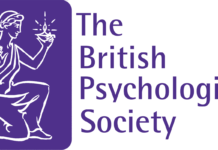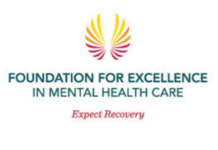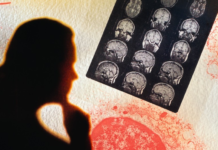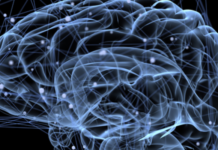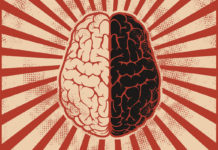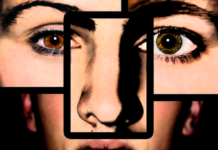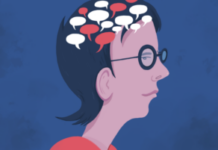Psychologists Push For New Approaches to Psychosis: Part 1
Psychologists and people with experience of psychotic symptoms publish a report on new ways of understanding psychosis.
New Grant Boosts Hearing Voices Approach in USA
From The Foundation for Excellence in Mental Health Care: The Hearing Voices Research and Development Fund has been awarded a $300,000 grant to expand their...
Institutional Psychotherapy in France: An Interview
In this interview for Hidden Persuaders, Camille Robcis discusses institutional psychotherapy, a French psychiatric reform movement that began during the Second World War. Robcis explains...
Reading the Bible Through Neuroscience
In this interview for The Atlantic, James Kugel speculates on the minds and experiences of ancient prophets through a neuroscientific lens, exploring how biblical people's sense of...
Childhood Victimization Connected with Experiences of Psychosis
Childhood victimization associated with experiences of psychosis later in life, and in persons without childhood victimization, there is a bidirectional association between psychosis and adult victimization.
Lack of Sleep May be a Cause of Mental Health Conditions
From Live Science: A new study published in The Lancet Psychiatry found that participants who completed an online cognitive behavioral therapy program specifically for insomnia experienced...
Eating Oily Fish While Pregnant Could Prevent Schizophrenia
From The Conversation: According to a recent study from Japan, pregnant mice that are deprived of an essential fatty acid, called docosahexaenoic acid (DHA), are...
Leading Researchers Critique Current Paradigm for Studying ‘Schizophrenia’ Risk
Re-conceptualizing the Clinical-High-Risk/Ultra-High-Risk Paradigm: A critique and reappraisal
The Smartphone Psychiatrist
In this piece for The Atlantic, David Dobbs delves into the life of former NIMH director Thomas Insel, his critiques of research within the field of...
Researchers Question Add-On Treatment for ‘Schizophrenia’
A common practice when antipsychotics are found to be ineffective for schizophrenia is to prescribe a second, additional psychoactive medication. Now, a new study suggests that this practice is not supported by the research.
The Concept of Schizophrenia is Coming to an End – Here’s Why
From The Conversation: Many researchers are beginning to acknowledge that the concept of "schizophrenia" as a discrete, hopeless, and deteriorating brain disease does not exist. In...
Pledge Support for Changes in Understanding of Psychosis
From Critical Psychiatry: The International Society of Psychological and Social Approaches to Psychosis (ISPS) has produced a 'Liverpool Declaration' stating that psychosis needs to be...
Study Identifies Cause of Weight Gain From Antipsychotic Drugs
From UPI: A team of researchers from the University of Texas Southwestern Medical Center found that the serotonin 2c receptor is responsible for weight gain...
A Mad World: Capitalism and the Rise of Mental Illness
From Red Pepper: Capitalism produces much of the mental distress that is categorized as "mental illness" by turning human creativity and connectivity into social isolation,...
The Politics of Mental Health
In this piece for Revolutionary Socialism in the 21st Century, Hazel Croft argues for a more radical approach to mental health, exploring the impact of neoliberal...
A Glimpse Inside US Mental Health Detention Centre
From The Sun: New York photographer Lili Holzer-Glier was recently allowed inside the Cook County Department of Corrections in Chicago, where 35 percent of inmates...
Voices in our Heads: The Prefrontal Cortex as Parasite
As I considered the voice I heard talking to me in my own head, it occurred to me that what was happening was, more or less, a later development of the brain talking to a more basic and earlier level of consciousness, one which was not verbal itself and was, in fact, the actual seat and locus of my real awareness.
Overemphasis on Disease Entities in Psychosis
From Critical Psychiatry: Jim van Os, who has argued we should abandon the term "schizophrenia," recently wrote an article in support of a unitary model...
Half of First-Episode Patients Respond to Antipsychotics
No placebo controlled trials provide evidence of antipsychotics in first-episode psychosis.
Not Everyone Wants to Silence the Voices in Their Heads
From Science of Us: There seems to be a growing interest in the concept of healthy voice-hearing. The idea that hearing voices may not be...
Schizophrenia’s Tangled Roots
From Sapiens: Researchers are increasingly recognizing the role that social and environmental factors, including childhood abuse, stressful events, and poverty, play in the development of...
Study Finds Hearing Voices Groups Improve Social and Emotional Wellbeing
Hearing Voices Network self-help groups are an important resource for coping with voice hearing, study finds.
Do Voice Hearers Have the Right to Refuse Psychiatric Drugs?
In this piece for STAT, Shirley S. Wang discusses the Hearing Voices Network and its non-pathologizing, rights-affirming approach to hearing voices and alternative realities.
"Many recovered...
Hearing Voices in the USA
The World Hearing Voices Congress will be landing in Boston, Massachusetts in August. The Hearing Voices movement is up against a lot in this culture where there's so little tolerance for uncertainty and exploration. This movement, this event, and so many people's lives depend on all of us to carry this perspective forward.
Large Study Confirms Elevated Risk of Diabetes When Prescribed Antipsychotics
A large longitudinal study finds once more that being prescribed antipsychotics significantly increases the risk of diabetes.

